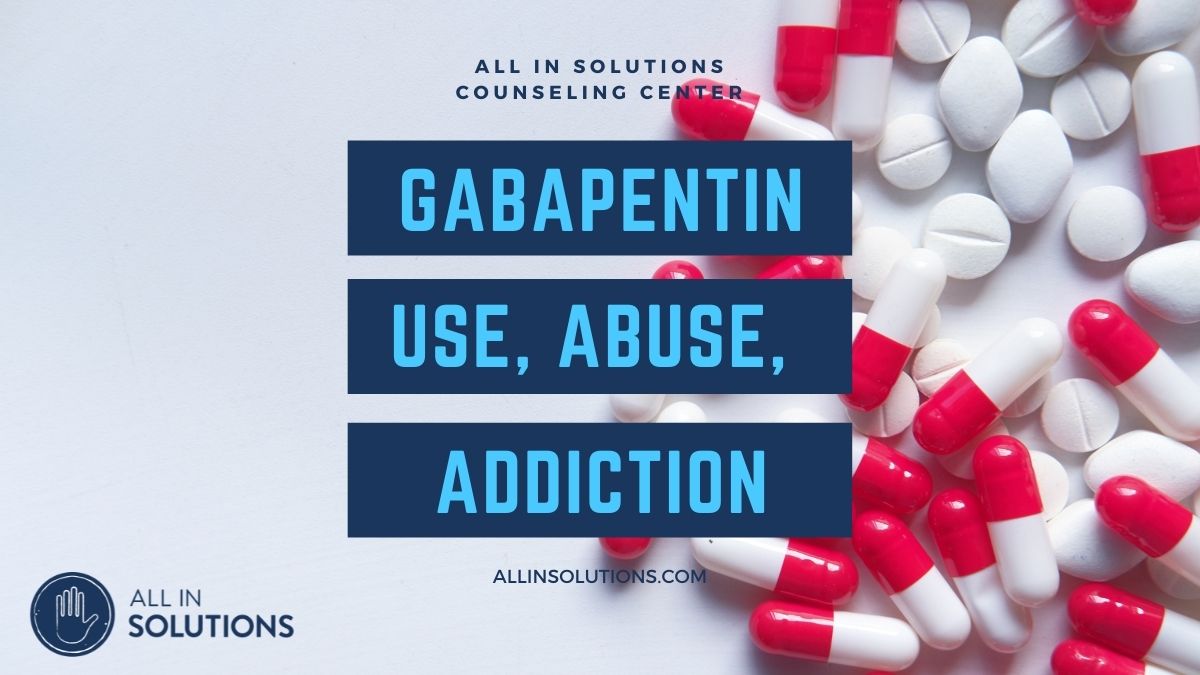Science has made it possible to develop a vast array of drugs that can make a huge, positive impact on the lives of millions of people suffering from painful conditions. We have made great strides, but there is still much to be done. There is ample evidence to show that many of these drugs can have dangerous side effects, and are addictive. Gabapentin is one of these drugs.
Gabapentin: What is it?
Gabapentin, an antiepileptic drug and anticonvulsant medication, is also known as Neurontin. Neurontin is also known as Gabapentin. It alters the way your brain works. It alters the neuroelectric functioning of your brain by changing the transmission of signals between nerve cells. Gabapentin side effect are very rare when it is taken according to a doctor’s instructions. Gabapentin interactions with other drugs can be dangerous. Patients should inform their doctors about all Gabapentin medications.
Gabapentin is available in several forms including sustained release and immediate release. Sustained-release can delay the body’s ability to absorb the medication, and any side effects. People with substance abuse disorders prefer it. Delayed-release can cause a delay in the body’s ability to absorb medication and also reduce the pleasure or “high” feelings one feels when taking medication.
Gabapentin is not considered a controlled substance by the federal government, but it has been classified as a Schedule 5 controlled drug in Kentucky and Michigan. It is not considered a narcotic, and it is mildly addictive.
Gabapentin: Why Gabapentin is Popular
Gabapentin can be prescribed for epilepsy, restless leg syndrome, and nerve pain (neuropathy). Gabapentin is safe and can be administered to children with certain types of seizures if it is used properly. It can also be used to treat fibromyalgia and shingles pain.
Gabapentin is sometimes prescribed by doctors for non-approved uses. This means that gabapentin is approved for specific purposes and has been used to treat other conditions by doctors and patients. Gabapentin is prescribed for attention and bipolar disorder. It can also be used to treat drug withdrawal seizures and alcohol withdrawal. Because of its unclear mechanism of action, it has been referred to as a “catch-all” medication.
Gabapentin dosage is very important for those suffering from seizures. It is important to take the prescribed dose at the right levels and at the right intervals. Inadequate dosage can cause seizures to intensify and other serious side effects. Adults who take gabapentin should do this at regular times and be very careful about when they stop taking it. Gabapentin should be taken as directed. It is also important to know how to stop taking it.
Gabapentin: Why and How Do People Use It?
Gabapentin is a useful medication that can be used to treat a variety of diseases. Its chemical structure has a minimal effect on certain brain areas, which is a plus. Gabapentin is a safer option to opioids which can be addictive.
Gabapentin can be addictive, but that does not mean it is safe. Gabapentin’s chemical structure can cause people to feel relaxed and joyful as well as pain relief and anxiety. These feelings may not be as intense as those associated with opioids but they are still present and can lead to physical dependence. Gabapentin withdrawal can be very dangerous. Doses must be administered in a safe manner.
Common Gabapentin Withdrawal Signs
- Agitation
- Confusion/Disorientation
- Sweating
- Gastrointestinal symptoms
- Tremors
- Heart rate fast
- High blood pressure
- Insomnia
Gabapentin can be misused in many different ways. A doctor can prescribe the drug to patients for a medical condition. However, they may become addicted. Some people report abuse by crushing and snorting gabapentin, rather than swallowing it orally.
Street names for Gabapentin
Numerous news reports have highlighted the strong black market for gabapentin. Also known as “johnnies” and “gabbies”, they can be found on the streets. Illegally purchasing the medication can lead to addiction and make it extremely dangerous. The risk of buying counterfeit medication or misusing the medication is also present. These pills may contain fentanyl, increasing the risk of an overdose.
Gabapentin Abuse
Numerous studies have shown gabapentin addiction and abuse is possible. Gabapentin can cause “high” effects similar to euphoria, and patients may feel “zombie-like”. One 2012 study found this. This study reviewed all available evidence and concluded that gabapentin is widely prescribed. Gabapentin was also found in increasing numbers of toxicology reports. This report also noted that gabapentin was increasingly being found in illegal drugs like heroin, increasing its danger.
A 2016 review of available evidence found that as little as 1% could be using gabapentin. Only 40 to 65% of those who misused gabapentin were found to have done so legally. Additionally, between 15 and 22 percent of opioid-users also used gabapentin. This created a complex situation where people could misuse multiple drugs at once. These disorders can be more difficult to treat and are more dangerous.
Gabapentin, which is not an opioid, was created partly to be less addictive than opioids.
Gabapentin Addiction & Abuse: The Effects
Gabapentin can be dangerous even under normal circumstances. Gabapentin must be taken exactly as prescribed by your doctor. Failure to do so could lead to a variety of side effects including:
- Loss of coordination
- It is difficult to speak
- Abnormal eye movements
- Nausea & vomiting
There are more serious side effects than just irritability. These include mania, panic attacks and violent behavior. Gabapentin can be associated with suicidal thoughts and actions in some instances. Misuse or abuse can make these side effects worse.
Gabapentin can be dangerous if it is taken in an unprescribed manner. Gabapentin can interact with other medications in dangerous ways, including causing breathing problems. This is why you should always consult your doctor before taking gabapentin.
Gabapentin can be addictive, some people wonder. Gabapentin has addictive properties, but it is not likely to cause dependence. Gabapentin can have pleasant side effects that are euphoric, as we’ve already mentioned. People can become dependent on the drug because of the way it affects the brain’s nerve signals. Gabapentin doesn’t produce the same tolerance effects that opioids. However, some side effects of gabapentin, such as anxiety reduction, can be tolerated by people. They may become more dependent on the drug and end up becoming more addicted.
Gabapentin overdose can lead to death in extreme cases. Overdose is not treatable with Narcan. However, an individual can intervene directly to help someone who has overdosed. To save the life and health of someone who has overdosed, immediate medical attention is required. An overdose does not have to result in death. However, medical attention and the right medical care administration can help. The individual should then seek immediate treatment for their gabapentin addiction disorder.
How long does gabapentin last in your body?
Gabapentin has a half-life of 5-7 hours. This means it can stay in your system for approximately 48 hours and won’t show up on drug tests. Gabapentin will not be detected by a standard 10-panel drug screen for controlled substances. These tests are used to screen for drugs such as cocaine, amphetamines and cannabis. A saliva swab test is ineffective for detecting gabapentin. Most commonly, the drug is detected using urinalysis and blood tests.
The following general guidelines apply:
| Blood tests | Maximum of two days |
| Hair tests | Maximum 30 Days |
| Urine tests | For most people, it takes one to two days |
| Saliva tests | It cannot be detected with a mouth swab. |
Age, body mass, overall health and the amount and frequency of medication used are all factors that can be used to determine detectability.
Gabapentin Addiction Treatment
Gabapentin abuse disorder treatment can vary depending upon the severity of the addiction as well as the person’s past. Because no two people are alike, there will be no one treatment plan for addiction that is the same.
Gabapentin addicts have many treatment options. You can combine any of them.
Gabapentin Treatment
Sudden discontinuation of Gabapentin can lead to serious health problems. Call now at 855-762-3796 if you or someone you care about is looking for help with substance abuse.
A person must have a thorough medical evaluation before they can begin detox. Gabapentin does not contain opioids. Medication-assisted opioid treatment will not work with Gabapentin. The medical professionals who you will interact with will manage your withdrawal symptoms and will do their best for you.
There are many options available for detox.
Out-patient treatment
Outpatient treatment allows the individual to continue living at home or in another location while undergoing treatment. The individual may work with counselors or therapists. These professionals can help people find the root cause of their addiction, manage their illness, and implement lifestyle changes that will lead to a lasting recovery.
In-patient treatment
In-patient detox and treatment can be the best option for some. A person will be able to stay in a treatment facility, participate in structured activities and groups daily, and work with a primary counselor to help them understand their addiction and learn recovery principles.
Group therapy & support groups
A group therapy meeting is usually facilitated by a licensed therapist. Participants participate in structured discussions or activities that relate to their substance abuse disorders. Peer-led support groups like Alcoholics Anonymous focus on recovery and are led by peer leaders. It doesn’t matter if it’s group therapy or support groups, the goal is for all participants to learn from one another and use their challenges and issues to grow.
Gabapentin addiction is treatable, as you can see. Gabapentin addiction can be treated with the right care and counseling. You don’t have to live a life of pain and suffering. For more information about how our experts can help with your recovery from gabapentin dependence, contact us today.
All In Solutions Counseling Center is a drug and alcohol abuse treatment network. We offer outpatient & inpatient substance abuse treatment programs that are tailored to meet each client’s needs. Our specialized programs include:
- Christian recovery
- MAT for opiate addiction
- Art therapy treatment
- Men’s addiction treatment
- Women’s addiction treatment
Our locations include:
Did you miss our previous article…
https://www.allinsolutions.com/coral-springs-mat-drug-rehab/





